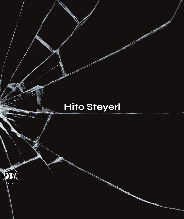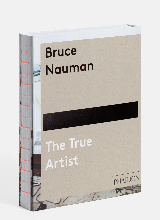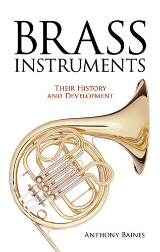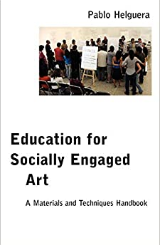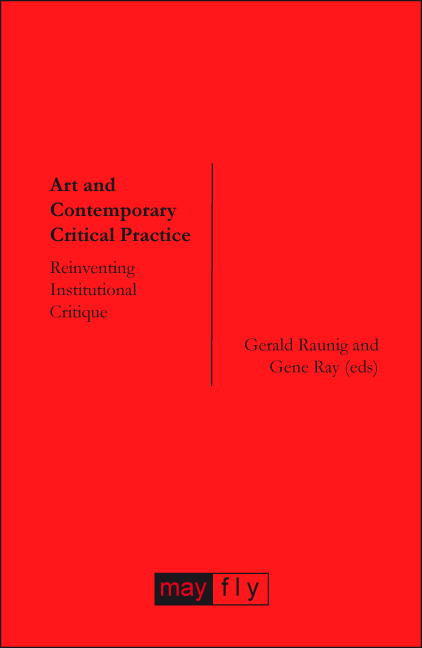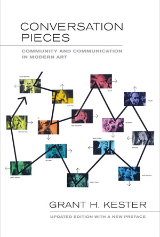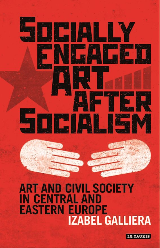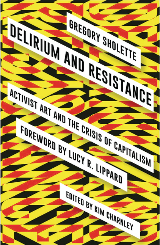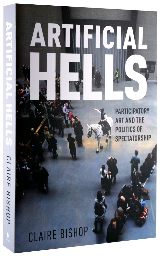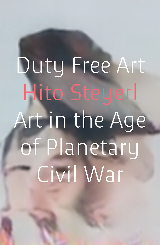Könyvajánlók
The Gilbert legacy : methods, exercises, and techniques for the flutist
Angeleita Stevens Floyd
Geoffrey Gilbert was an internationally known flutist, teacher, and master clinician. The Gilbert Legacy features insights into the analysis and logic of Gilbert's teaching and playing philosophy. It includes clear and concise descriptions of his methods and outlines exercises and techniques that target tone production, breath control, technique, and much more!
tovább >>>
Japonisme and the rise of the modern art movement : the arts of the Meiji period : the Khalili Collection
From the 1860s through to the 1890s the rise of Japonisme and the Art
Nouveau movement meant few could resist the obsession with all things
Japanese.
Superbly crafted and often highly decorated Japanese
objects – lacquer, metalwork, ceramics, enamels and other decorative
items rich in new and exotic subject matter – stimulated and inspired
Western artists and craftsmen to produce their own works. Arts of the
Meiji period (1868–1912) were displayed at international exhibitions, in
the galleries of influential dealers and at fashionable stores in
London, Paris and Vienna....
tovább >>>
Hito Steyerl : [Castello di Rivoli Museo d'Arte Contemporanea, Rivoli-Torino, November 1, 2018 - June 30, 2019]
Steyerl, Hito
art, are immersive architectural environments that seek to establish the way in which technology and Artificial Intelligence shape reality and how it is experienced.
This catalogue accompanies the exhibition The City of Broken Windows at Castello di Rivoli and features previously unpublished essays by Carolyn Christov-Bakargiev and Marianna Vecellio, the exhibition’s curators, and by
the feminist art historian Griselda Pollock. It also contains two new texts by the artist titled The City of Broken Windows (2018) and The City of Unbroken Windows (2018), published here for the first time, and her important essay In
Defense of the Poor Image (2009). Richly complemented by an extensive selection of images from the exhibition, the book includes an exhaustive scholarly chronology of the artist’s exhibitions, screenings and lectures and an anthology
of critical essays and interviews from 1998 to the present.
tovább >>>
Bruce Nauman : the true artist
Peter Plagens
"Bruce Nauman: The True Artist offers the fullest survey yet of this protean artist’s work. [Peter Plagens’s] first‐person journalistic tack is a welcome approach to an artist who often attracts jargon‐fond academics."—The New York Times Book Review...
tovább >>>
Brass instruments : their history and development
Anthony Baines
In this readable, well-researched history, a distinguished authority on
musical instruments offers a concise survey of the evolution of
trumpets, trombones, bugles, cornets, French horns, tubas, and other
brass wind instruments. The story begins with such primitive
contrivances as bark trumpets, conch shells and perforated animal horns,
bronze trumpets used by the ancient Danes and Celts, large Roman horns,
and other devices.
During the medieval period, a large number of
curved instruments or horns of various shapes and sizes developed,
including trumpets, looped horns, the sackbut (forerunner of the
trombone) and others, while the Renaissance saw the introduction of the
slide trumpet. In the nineteenth century, the advent of valved
instruments ushered in yet another new era.
In this extensively
revised and updated edition, Mr. Baines documents the various states of
the evolution of brass instruments with immense learning and a wealth of
detail. The text is supplemented by over 140 black-and-white
illustrations as well as 48 music examples. The result is a scholarly
yet accessible account that remains an indispensable resource for any
brass player or music historian.
tovább >>>
Education for socially engaged art : a materials and techniques handbook
Pablo Helguera
"For too long Social Practice has been the notoriously flimsy flipside of market-based contemporary art: a world of hand-wringing practitioners easily satisfied with the feeling of 'doing good' in a community, and unaware that their quasi-activist, anti-formalist positions in fact have a long artistic heritage and can be critically dissected using the tools of art and theatre history. Helguera's spunky primer promises to offer a much-needed critical compass for those adrift in the expanded social field." -Claire Bishop, Professor of Contemporary Art and Exhibition History, CUNY, and author of Artificial Hells: Participatory Art and the Politics of Spectatorship "This is an extremely timely and thoughtful reference book. Drawn from empirical and extensive experience and research, it provides a curriculum and framework for thinking about the complexity of socially engaged practices. Locating the methodologies of this work in between disciplines, Helguera draws on histories of performance, pedagogy, sociology, ethnography, linguistics, community and public practices. Rather than propose a system he exposes the temporalities necessary to make these situations possible and resonant. This is a tool that will allow us to consider the difficulties of making socially engaged art and move closer to finding a language through which we can represent and discuss its impact." -Sally Tallant, Artistic Director, Liverpool Biennial "Helguera has produced a highly readable book that absolutely needs to be in the back pocket of anyone interested in teaching or learning about socially engaged art" -Tom Finkelpearl, Director of the Queens Museum, New York, and author of Dialogues in Public Art
tovább >>>
Art and contemporary critical practice : reinventing institutional critique
‘Institutional critique’ is best known through the critical practice that developed in the late 1960s and early 1970s by artists who presented radical challenges to the museum and gallery system. Since then it has been pushed in new directions by new generations of artists registering and responding to the global transformations of contemporary life. The essays collected in this volume explore this legacy and develop the models of institutional critique in ways that go well beyond the field of art. Interrogating the shifting relations between ‘institutions’ and ‘critique’, the contributors to this volume analyze the past and present of institutional critique and propose lines of future development. Engaging with the work of philosophers and political theorists such as Michel Foucault, Judith Butler, Gilles Deleuze, Antonio Negri, Paolo Virno and others, these essays reflect on the mutual enrichments between critical art practices and social movements and elaborate the conditions for politicized critical practice in the twenty-first century.
tovább >>>
Conversation pieces : community and communication in modern art
Grant H. Kester
Some of the most innovative art of the past decade has been created far
outside conventional galleries and museums. In a parking garage in
Oakland, California; on a pleasure boat on the Lake of Zurich in
Switzerland; at a public market in Chiang Mai, Thailand—artists
operating at the intersection of art and cultural activism have been
developing new forms of collaboration with diverse audiences and
communities. Their projects have addressed such issues as political
conflict in Northern Ireland, gang violence on Chicago's West Side, and
the problems of sex workers in Switzerland. Provocative, accessible, and
engaging, this book, one of the first full-length studies on the topic,
situates these socially conscious projects historically, relates them
to key issues in contemporary art and art theory, and offers a unique
critical framework for understanding them. ..
tovább >>>
Socially engaged art after socialism : art and civil society in Central and Eastern Europe
Izabel Galliera
Reclaiming public life from the ideologies of both communist regimes and neoliberalism, their projects have harnessed the politically subversive potential of social relations based on trust, reciprocity and solidarity. Drawing on archival material and exclusive interviews, in this book Izabel Galliera traces the development of socially engaged art from the early 1990s to the present in Bulgaria, Hungary and Romania. She demonstrates that, in the early 1990s, projects were primarily created for exhibitions organized and funded by the Soros Centers for Contemporary Art. In the early 2000s, prior to Bulgaria, Hungary and Romania entering into the European Union, EU institutions likewise funded socially-conscious public art in the region. Today, socially engaged art is characterised by the proliferation of independent and often self-funded artists' initiatives in cities such as Sofia, Bucharest and Budapest.Focusing on the relationships between art, social capital and civil society, Galliera employs sociological and political theories to reveal that, while social capital is generally considered a mechanism of exclusion in the West, in post-socialist contexts it has been leveraged by artists and curators as a vital means of communication and action.
tovább >>>
Delirium and resistance : activist art and the crisis of capitalism
Gregory Sholette
In the aftermath of the 2016 US elections, Brexit, and a global upsurge of nationalist populism, it is evident that the delirium and the crisis of neoliberal capitalism is now the delirium and crisis of liberal democracy and its culture. And though capitalist crisis does not begin within art, art can reflect and amplify its effects, to positive and negative ends...
tovább >>>
Artificial hells : participatory art and the politics of spectatorship
Claire Bishop
Since the 1990s, critics and curators have broadly accepted the notion that participatory art is the ultimate political art: that by encouraging an audience to take part an artist can promote new emancipatory social relations. Around the world, the champions of this form of expression are numerous, ranging from art historians such as Grant Kester, curators such as Nicolas Bourriaud and Nato Thompson, to performance theorists such as Shannon Jackson...
tovább >>>
Duty free art
Hito Steyerl
How can one think of art institutions in an age defined by planetary civil war, growing inequality, and proprietary digital technology? The boundaries of such institutions have grown fuzzy. They extend from a region where the audience is pumped for tweets to a future of “neurocurating,” in which paintings surveil their audience via facial recognition and eye tracking to assess their popularity and to scan for suspicious activity...
tovább >>>


